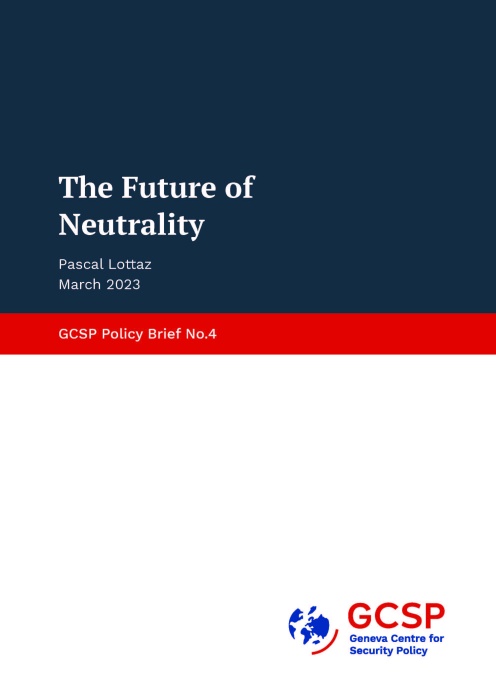The Future of Neutrality
“When all is said and done, neutrality is by no means the easiest
foreign policy. It is easier to obey than to stand on
one’s own feet. ... Neutrality presupposes a constant endeavour
to maintain the balance alertly and energetically, however threatening the storm clouds look.”Urho Kekkonen1
Neutrality is a naturally occurring phenomenon. There have always been actors on the world stage that have remained outside the conflicts of others, be they countries, religious institutions or international organisations (IOs). Even during the two world wars and the first Cold War (i.e. the US and its allies versus the USSR and its allies), some actors managed to avoid the battlefields or claimed a position separate from the various alliance systems. Despite the beliefs of some commentators that neutrality is coming to an end, there is no indication that world politics is actually about to change dramatically enough to eradicate the reasons and logic for neutrality. In fact, the least conductive international environment for neutrality – unipolarity – seems to be ending. What could be called the “New Cold War” (the West-aligned countries versus Russia in Europe and versus China in Asia) and the emerging multipolar world will likely produce the dynamics leading to more neutrality as a counter-reaction to the new great power rivalry. We should expect neutrality and neutralism – i.e. political movements demanding the adoption of neutrality policies – to strengthen. Nevertheless, neutrality is shifting. It is moving from Europe to other regions of the world, and, in the process, will likely also change conceptually. This Policy Brief will first describe the nature of neutrality and the three basic motivations for actors to opt for its policies. It then discusses the challenges any neutrality policy faces and will conclude by providing concrete recommendations for policymakers seeking to maintain neutrality vis-à-vis either hot or cold conflicts.
Disclaimer: The views, information and opinions expressed in this publication are the author’s/authors’ own and do not necessarily reflect those of the GCSP or the members of its Foundation Council. The GCSP is not responsible for the accuracy of the information.


